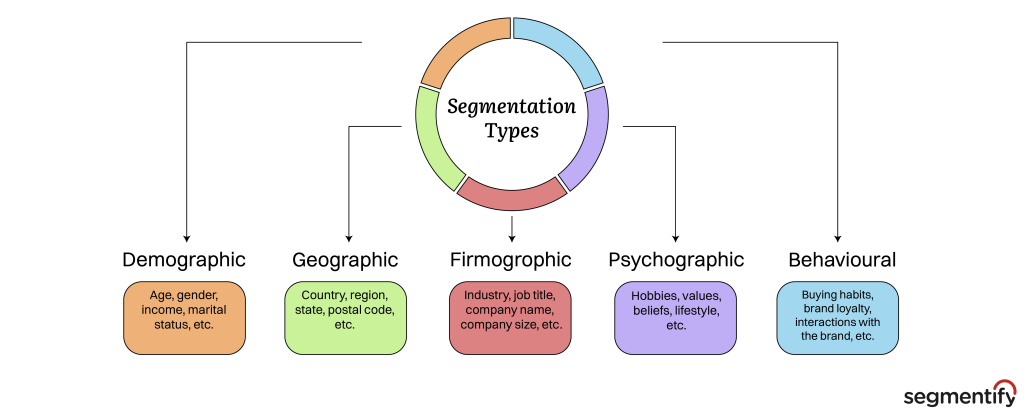We use cookies and similar technologies to enhance your experience. By clicking “Accept All,” you agree to the use of all cookies detailed in our Privacy Policy You can manage your preferences or withdraw your consent at any time
How to Improve Paid Marketing Efficiency by Understanding Market Segmentation
You must first understand your target users to create a successful paid marketing strategy. Target users can directly affect content creation, design, digital ads, and offline communication plans. Thus, with effective segmentation, your paid marketing strategy can be enhanced entirely, which leads your sales directly.
Key Takeaways
- From lead generation campaigns to retention campaigns, segmentation is essential for all types of marketing campaign objectives since effective audience segmentation directly affects content creation, design and paid ads.
- Knowing which communication channels your users prefer and how they respond to content about a product and service will help you create platform-specific content and ads.
- Ad groups and messages tailored to specific segments can improve your Return on Investment (ROI) and Return on Ad Spend (ROAS) while preventing irrelevant traffic, which may result in lower funnel events.
What is Market Segmentation?
Market segmentation is the act of dividing a market into groups based on characteristics such as age, gender, location, income and education level. Doing so helps assess specific market needs, deliver more relevant messages to different segments and increase the probability of generating a response or conversion.
Segmentation is essential for all types of campaign objectives, from lead generation to retention campaigns. Effective market segmentation allows you to customise different marketing strategies and communicate with your customers more efficiently.
What are the Different Types of Marketing Segmentation?

Five common types of market segmentation you can use in your digital marketing strategy are:
1. Demographic Segmentation
2. Geographic Segmentation
3. Firmographic Segmentation
4. Psychographic Segmentation
Digital marketers should know who their potential customers are, as well as their interests, needs, behavioural patterns and purchasing power before the segmentation. Having a clear idea about your target audience leads to efficient segmentation. For instance, firmographic segmentation is crucial for B2B campaigns and businesses, while an eCommerce business prefers behavioural segmentation.
Read More: How Customer Segmentation Works in 6 Steps
Why is Market Segmentation So Important for Digital Campaigns?
1. Increased Customer Satisfaction
First things first, effective segmentation in digital marketing campaigns leads to customer satisfaction. Creating a personal relationship with customers allows both potential and existing customers to see your dedicated involvement in the sales and marketing processes, affecting your engagement metrics and conversion rates immediately.
2. Omnichannel Communication Mix
Since each digital marketing channel has a different tone of voice and audience, knowing your customer is imperative to decide your channel mix. Knowing which communication channels your users prefer and how they respond to content about a product and service may help you create platform-specific content and ads.
3. Reduced Marketing Costs
Targeting specific ad groups and promoting specific messages for the segment allows you to get better Return on Investment (ROI) and Return on Ad Spend (ROAS) and prevents irrelevant traffic, which may reduce your funnel events by increasing media buying costs.
4. Schedule Planning
Understanding different groups’ behaviours can help your communication plan. For example, if your target group prefers to spend time while commuting to work, you should target them within the given time interval.
5. Product Development
Researching each segment’s needs allows you to study which products might appeal most to each group — potentially opening up new markets for your business. You can develop new products that may be interesting for the main segment of your target audience, thus appealing to a large group of customers with a high buying potential.
6. Optimised Landing Page Design
Effective segmentation can play an essential role in gathering better landing page metrics and conversion rates (CR). Understanding the different needs and problems of different segments is the key to creating a unique landing page. Targeting the specific audience and landing them on a particular landing page where they can find personalised solutions and products will lead to better CR and website metrics.
Wrapping Up
From lead generation campaigns to retention campaigns, segmentation is essential. Segmenting your market allows you to tailor your marketing strategies and communicate more effectively with your customers, which will significantly enhance your paid marketing strategy, resulting in direct sales.








